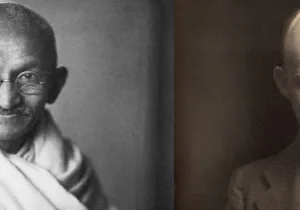Is Christian realism enough? Providence, the magazine to which I am a contributing editor, had Reinhold Niebuhr’s Christian realism very much in mind at the time of its founding. Americans had contracted war fatigue from the blood and treasure lost in the Middle East; the neoconservative justification for those wars no longer seemed credible to a growing number of citizens, and the isolationist impulse against which Niebuhr railed in the 1930s was beginning to express itself in our own century. The reinvigoration of Christian realism would be the cure. The task, in my estimation at least, was to find a Goldilocks intermediate position between neoconservatism and isolationism. Niebuhr’s Augustinian view of the world provided it. Cognizant that man’s sin made the use of power both necessary and dangerous, the intermediate position would avoid neoconservative moral certainty and the naivety of isolationism.
Magazines must circumscribe their purview. Providence is no exception. Its focus is Christianity and foreign policy. Although Niebuhr’s Christian realism is a worthy framework for considering foreign policy, it is worth remembering that by his own admission, already in 1941, his life’s work of bringing an understanding of original sin back to the mainline churches had failed.[1] Why did it fail; what was the consequence of that failure for the mainline churches; and what have been the consequences of that failure for current US foreign policy?
Notwithstanding his skirmishes with the Roman Catholic Church, Niebuhr’s real battle was with liberal Protestantism, which had increasingly distanced itself from the strong rendition of the doctrine of original sin that prompted the Reformation break with the Roman Catholic Church in the first place. By the time of his death in 1971, the mainline churches were in receivership.
This sorry state did not occasion the death knell of Protestantism, however. Attentive parishioners would have noticed, as decade followed decade, that sermons became more overtly political in proportion as political speech outside the church became increasingly righteous. Content to provide justification for the social and political causes of the moment rather than justifications to push back against them, church attendance predictably declined. Today, in many mainline churches, the average age of attendees approaches 60 years old. The young, Pew surveys suggest, now count themselves among the “nones.” The end of Protestantism is near.
That narrative, however, ignores the obvious. The mainline churches did not die. The categories of transgression and innocence, purity and stain, have now effectively migrated from the mainline churches into the universities and from thence into the Democratic Party, which is now the political wing of the universities. To say the same thing in a different manner, the universities are now the theological wing of the Democratic Party. Together, they disseminate the political theology of identity politics. In sum, Protestantism—or at least its fundamental insight about the radical transgression of man, and the need for a scapegoat through which he may be purified—is alive and well. Is it any wonder, really, that our young people do not go to church for their theology of transgression and innocence when they can find it through identity politics?
Strangely, Niebuhr’s formulations themselves are implicated in the collapse of the mainline churches. He fought valiantly to uphold the doctrine of original sin, but it was his understanding of Christ, the One Sufficient Sacrifice, that fell woefully short—and because it fell short, his doctrine of original sin was bound to fall short as well. Man is stained from sin. Those stains must be covered over in order for him to be acceptable to God the Father. Psalm 91:4 already gives textual warrant for this idea: “He shall cover thee with his feathers, and under his wings shalt thou trust.” In the New Testament, this covering takes the form of the blood of Christ, which by virtue of covering the sinner, washes his sins away. 1 John 1:7 is emblematic: “the blood of Jesus Christ His Son cleanseth us from all sin.” Niebuhr, himself more modern than perhaps he was willing to admit, could not go this far. He would write about man’s pride—but not about stain and the blood sacrifice that must atone for it.
Identity politics does go this far, though in deeply convoluted ways. In identity politics, the sacrificial offering is the white heterosexual male, through whose sacrifice all other identity groups become pure and without stain. Like Christ, the white heterosexual male is the scapegoat who, by being purged, assures the community of innocents who are not white heterosexual males that they are pure.
It should go without saying that this is by no means meant to be a defense of the white heterosexual male, only an indication that in the world identity politics constructs, his significance is elevated to a level that is unwarranted.
Identity politics has captivated America, or at least large parts of it. Whether its practitioners are able, at some point, to discover that their political theology of transgression and innocence is better understood within the confines of the Protestant churches from which their political theology actually arises remains to be seen. To give the current moment a pithy formulation, identity politics is an American Awakening, without God, and without forgiveness.
It is the foreign policy implications of identity politics that should concern us here in the pages of Providence. Niebuhr’s Christian realism is an invitation to develop a morally responsible foreign policy that is neither prideful nor naïve. Christian realism, however, is not enough. Identity politics understands the original sin of the white heterosexual male to implicate all that he has touched, not least of which is the nation, which is taken to be a construction of his that is responsible for the great wars of the twentieth century; colonialism in Africa, the Middle East, South America, and South Asia; and slavery in America. A Protestant of the sort that scarcely exists today would say that all are stained because of Adam’s transgression, and that only the divine self-sacrifice of God can atone for man’s transgression. Identity politics recognizes irredeemable sin, but seeks an immanent resolution to the problem, namely, purging all that the white heterosexual male has constructed—including the nation. Not by the sacrifice of Jesus do we achieve redemption, but rather through the renunciation of the nation and its irredeemable stain. That is why citizens in Europe and in America are clamoring for the EU or for global governance. In the world identity politics constructs, there is no other way for their stain to be removed.
Christian realism has nothing to say about this now ascendant frame of mind. Christian realism recognizes the pride of man, but takes the nation itself to be a fixed feature of the world, as Augustine did long ago, and the Hebrews did before him. God’s salvific plan of the world of nations is his to disclose, in a providential history that man cannot grasp in advance. Identity politics finds this to be a filthy delusion. The Christian God, the nations he authorizes, and his so-called providential history are the invention of the white heterosexual male who himself and all that he has invented must be purged so that the world may be made pure.
If identity politics is to be combatted, it will not be with a Christian realism whose Christ lacks the atoning power of blood sacrifice. Identity politics, which seems to be anti-Christian, is in fact a profoundly Protestant heresy, which can only be corrected by a Protestantism that has the audacity to double-down on the claim identity politics makes about the irredeemable sins of man, and yet insist that a divine scapegoat, rather than a merely mortal one, is the resolution to the problem that is man, and the source of his redemption.
Joshua Mitchell is a professor of government at Georgetown University. His most recent book is Tocqueville in Arabia: Dilemmas in a Democratic Age.
Photo Credit: Unsplash.
[1] See Reinhold Niebuhr, The Nature and Destiny of Man (New York: Charles Scribner’s Sons, 1941), Vol. II, Preface, p. viii.







 Live in the DC area? Sign-up for Providence's in-person events list!
Live in the DC area? Sign-up for Providence's in-person events list!